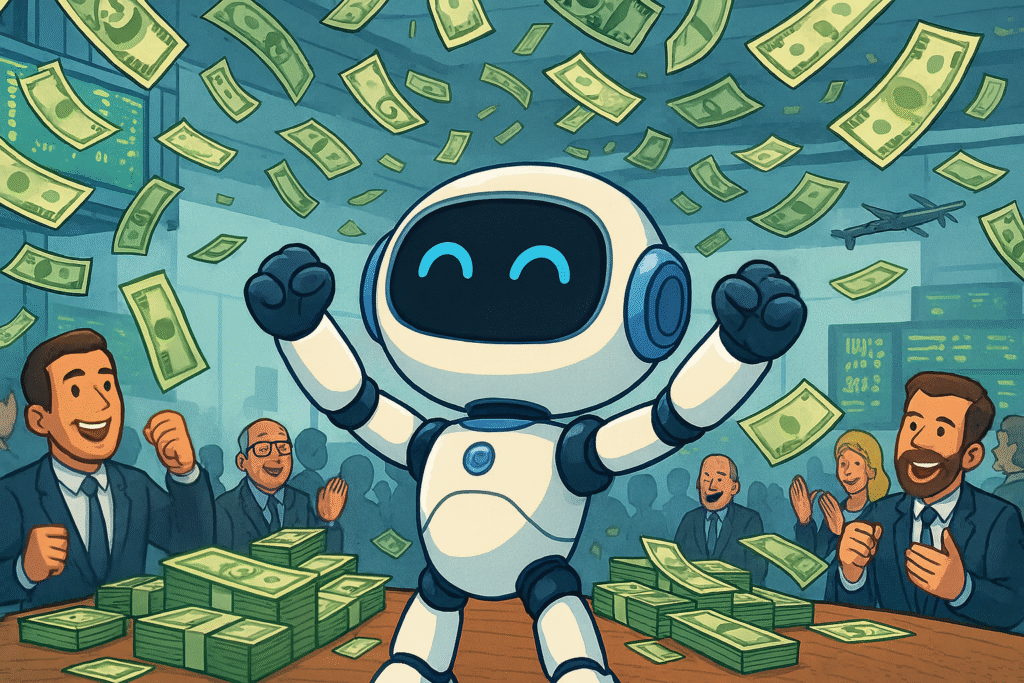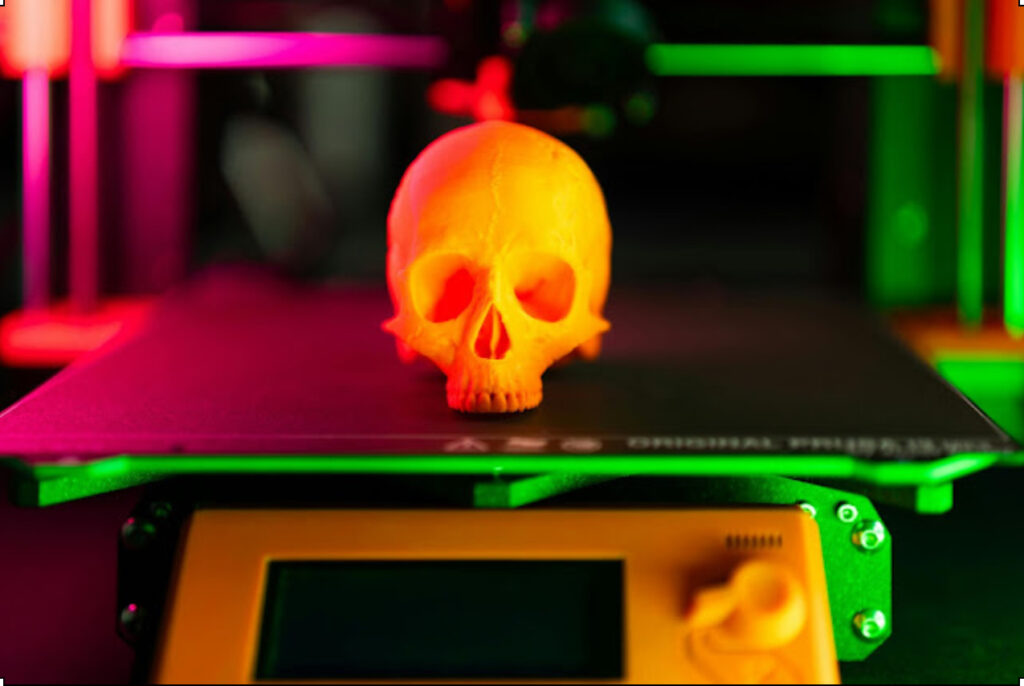Salesforce announces $15 billion AI investment in San Francisco

Salesforce announces $15 billion AI investment as part of an ambitious strategy to turn San Francisco into one of the world’s largest artificial intelligence innovation hubs. The announcement marks a new era for the CRM (Customer Relationship Management) giant, now positioning itself not only as a software provider but as a leader in the corporate AI revolution.
The multi-billion-dollar investment reinforces the company’s commitment to integrating artificial intelligence, automation, and data — the same pillars that power its ecosystem of solutions like Einstein, Data Cloud, and Slack AI. But the move goes beyond technology: it’s about preparing companies and developers for a market where “smart work” is increasingly driven by AI.
Why is Salesforce announcing a $15 billion AI investment now?
Salesforce announces $15 billion AI investment to strengthen its innovation hub in San Francisco and accelerate the development of AI-based enterprise tools. According to Reuters, the investment will be distributed over five years and includes building a dedicated AI campus, forming regional partnerships with universities in Mexico, and launching a stock buyback program to stabilize the company’s market value. Source: Reuters
This move comes amid a mild slowdown in Salesforce’s global revenues as it faces growing competition from Microsoft, Oracle, and HubSpot. With this investment, the company aims to reaffirm its leadership and consolidate AI as a growth engine for the coming years.
| Company | Project / Scope | Announced Investment (2025*) | Source |
|---|---|---|---|
| Salesforce | AI Hub in San Francisco / Corporate AI | US$ 15 billion | Reuters |
| Microsoft | Infrastructure and General AI | ~US$ 80 billion | DeepNewz |
| Google / Alphabet | Data Centers + AI + Gemini | ~US$ 75 billion | DeepNewz |
| Meta | Social Platforms + Generative AI | ~US$ 60–65 billion | DeepNewz |
| *Estimates for the 2025 fiscal year released by market analyses. | |||
A strategic move during slowdown
Market analysts see this as a strategic response to Salesforce’s stock decline of approximately 28% in 2025. CEO Marc Benioff stated that the goal is to “redefine the value of CRM through AI,” integrating machine learning and automation across all levels of the business.
In practice, this means that products like the Einstein Copilot — Salesforce’s AI assistant — will receive massive investment in personalization and predictive automation, making them even more adaptable to each client’s specific needs.
Who benefits from this move?
The biggest winners in this new phase are Salesforce’s corporate customers. With the expansion of the AI hub, companies will gain access to more advanced and integrated solutions for CRM, marketing automation, and intelligent customer service. Source: Reuters
Additionally, startups and partner developers will be able to connect with the Salesforce AI Cloud ecosystem, which will provide open APIs and credits to integrate language models (LLMs (Large Language Models)) into business solutions. This is expected to lead to the emergence of new corporate agents capable of automating sales, support, and real-time analytics.
The impact on San Francisco and Latin America
The new $15 billion AI investment reinforces Salesforce’s deep ties with the city where it all began. San Francisco — struggling with economic challenges since the pandemic — will be revitalized through new jobs, academic partnerships, and technological infrastructure.
According to the company’s statement, the plan will generate thousands of direct and indirect jobs and invest in digital education. Universities in Mexico and Colombia have already joined the initiative, focusing on AI and data science training. This positions Latin America as an active player in Salesforce’s global AI ecosystem.
AI Hub and educational partnerships
The San Francisco AI campus will be an open innovation space connecting researchers, startups, and internal teams. The goal is to replicate the collaboration model seen at OpenAI and NVIDIA — with shared labs, immersive environments, and testing areas for conversational agents.
Marc Benioff emphasized that Salesforce wants to “democratize access to AI and empower an entire new generation of corporate creators.” This phrase perfectly captures the company’s new positioning: betting on AI not only as a tool but as an ecosystem.
How this investment reshapes the corporate AI market
With Salesforce announces $15 billion AI investment, the corporate landscape is witnessing a race toward automation centered on human collaboration. Rather than replacing workers, Salesforce’s vision of AI is one that collaborates with teams — providing insights, predictions, and support in real time.
This approach sets Salesforce apart from competitors who still treat AI as an isolated tool. The focus is to build a complete, integrated platform with intelligent agents embedded across every CRM layer — from marketing to after-sales.
Integration with Einstein and Slack ecosystems
One of Salesforce’s greatest advantages lies in its seamless integration between platforms: Einstein (corporate AI), Slack (collaboration), and Tableau (data analytics). With this investment, Einstein Copilot will become more intuitive — capable of drafting automatic emails, generating natural-language reports, and forecasting customer satisfaction metrics.
Slack, in turn, will gain smarter automation tools that let teams create workflow prompts using natural language — no coding required.
The role of sustainability and responsible AI
Beyond innovation, the plan includes policies for sustainability and AI governance. Salesforce remains one of the few tech giants with a permanent ethical AI committee focused on transparency and responsible data use.
The new San Francisco hub will run on 100% renewable energy, reducing its carbon footprint and setting a sustainability benchmark for the tech sector. The company has pledged that every expansion will align with the UN’s Sustainable Development Goals.
Ethical and empathetic AI: the next frontier
According to Paula Goldman, Salesforce’s Chief Ethical and Humane Use Officer, the challenge is not just creating powerful AI but ensuring it’s fair, accessible, and empathetic. “We aim to build AI that understands people — not replaces them.”
This reflects a broader global shift toward human-centered technology, where empathy and purpose are as critical as performance.
Global impact on the AI ecosystem
The announcement that Salesforce announces $15 billion AI investment is already resonating across the global market. Analysts predict that this move could push other tech giants to expand their regional investments — especially in emerging innovation hubs like Brazil and India.
By strengthening corporate AI adoption, small and medium-sized businesses will gain access to smarter, more affordable automation solutions, reducing barriers to entry in the digital economy.
Competition and collaboration among giants
While Salesforce, Microsoft, and Google Cloud continue to compete in corporate AI, there are also signs of technical collaboration. The interoperability between generative models (like GPT and Claude) and Einstein AI modules may accelerate the creation of hybrid, cross-platform solutions.
The result? A more diverse market where enterprise users can choose among multiple interoperable platforms — all centered on productivity and data security.
Challenges and risks of a $15 billion bet
Every massive investment carries risks. If AI adoption across enterprises slows, Salesforce could face margin and profitability pressure. Additionally, its reliance on cloud infrastructure and the high cost of model training remain significant hurdles.
However, most experts agree that the potential return outweighs the risk. The global corporate AI market is expected to surpass $500 billion by 2030, and Salesforce is positioning itself early for that growth curve.
The challenge of speed
The biggest competitive factor now is implementation speed. Salesforce aims to deliver its solutions quickly while maintaining strict data security and result quality. That balance between agility and reliability will determine whether the $15 billion strategy succeeds.
Conclusion: an investment redefining the future of CRM
The announcement that Salesforce announces $15 billion AI investment is more than a financial milestone — it’s a strategic repositioning at the heart of the digital revolution. By combining innovation, sustainability, and empathy, Salesforce is signaling that the future of CRM lies in generative AI, personalization, and purpose-driven design.
In a world where data is the new gold and automation defines competitiveness, Salesforce is betting on the perfect marriage between intelligence and humanity. The future of work, service, and management will inevitably pass through intelligent agents — and Salesforce wants to lead that transformation.
📢 Call to Action
Want to learn how to apply AI in practice? Access our tutorials and discover how to structure intelligent agents, automations, and workflows in your routine or business: 👉 techinness.com/tutorials
💬 Frequently Asked Questions (FAQ)
- When does the investment begin?
The plan will roll out over the next five years, with annual development phases in San Francisco and Latin America. - How many jobs will it create?
Thousands of direct and indirect positions are expected in the Bay Area and regional hubs. - Will it replace existing technologies?
No. It enhances existing platforms like Einstein, Data Cloud, and Slack AI, making them more autonomous and connected. - How can companies get involved?
Through partnerships with the Salesforce AI Cloud program for integration and custom agent development. - Are there plans to expand to Brazil?
Not officially yet, but Brazil is seen as a strategic priority in the Latin American expansion.
📚 Sources
- Reuters – Salesforce to invest $15 billion in San Francisco over five years
- Forbes – How Salesforce Is Reshaping AI for Enterprise Growth
- TechCrunch – Salesforce launches AI campus in San Francisco
- VentureBeat – Salesforce’s ethical and sustainable AI strategy
- Bloomberg – Salesforce announces major AI investment



